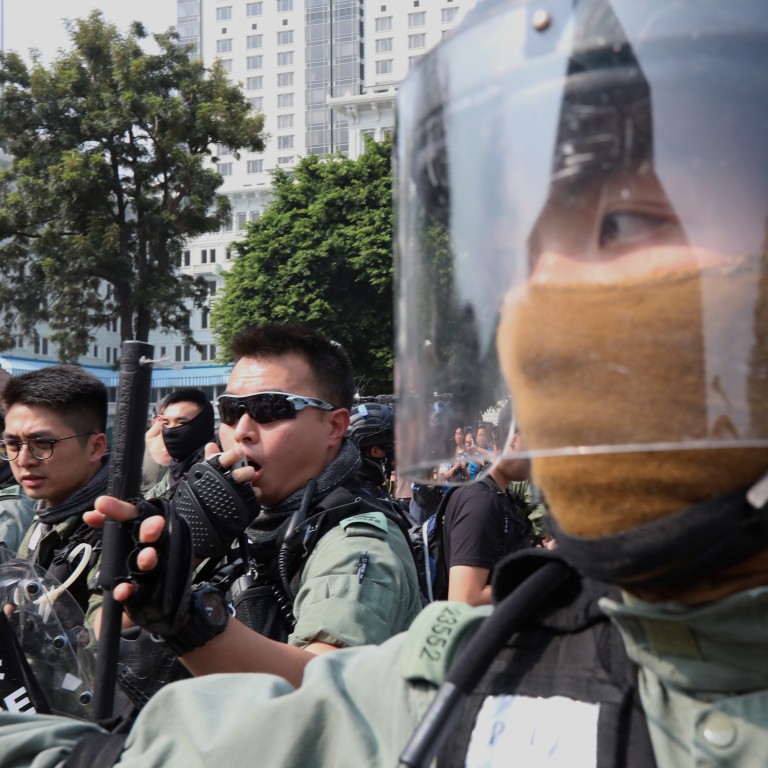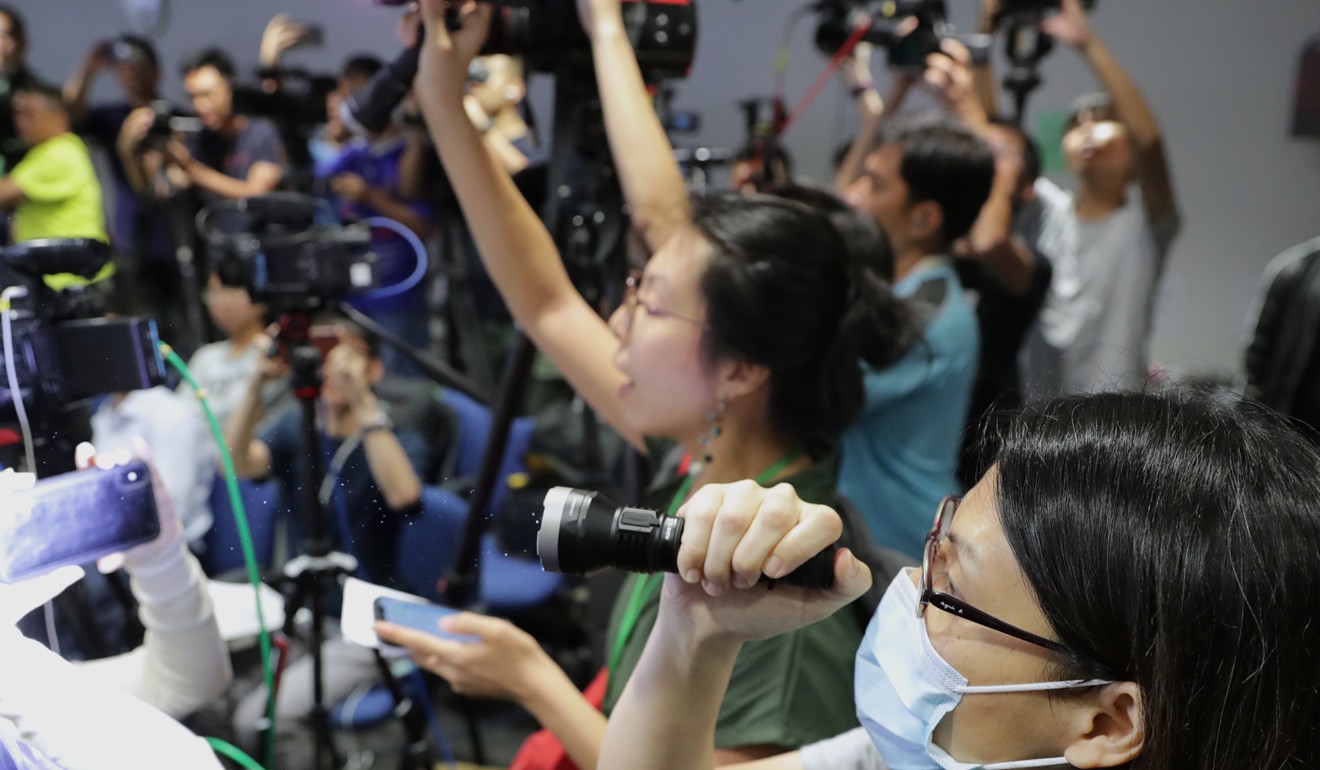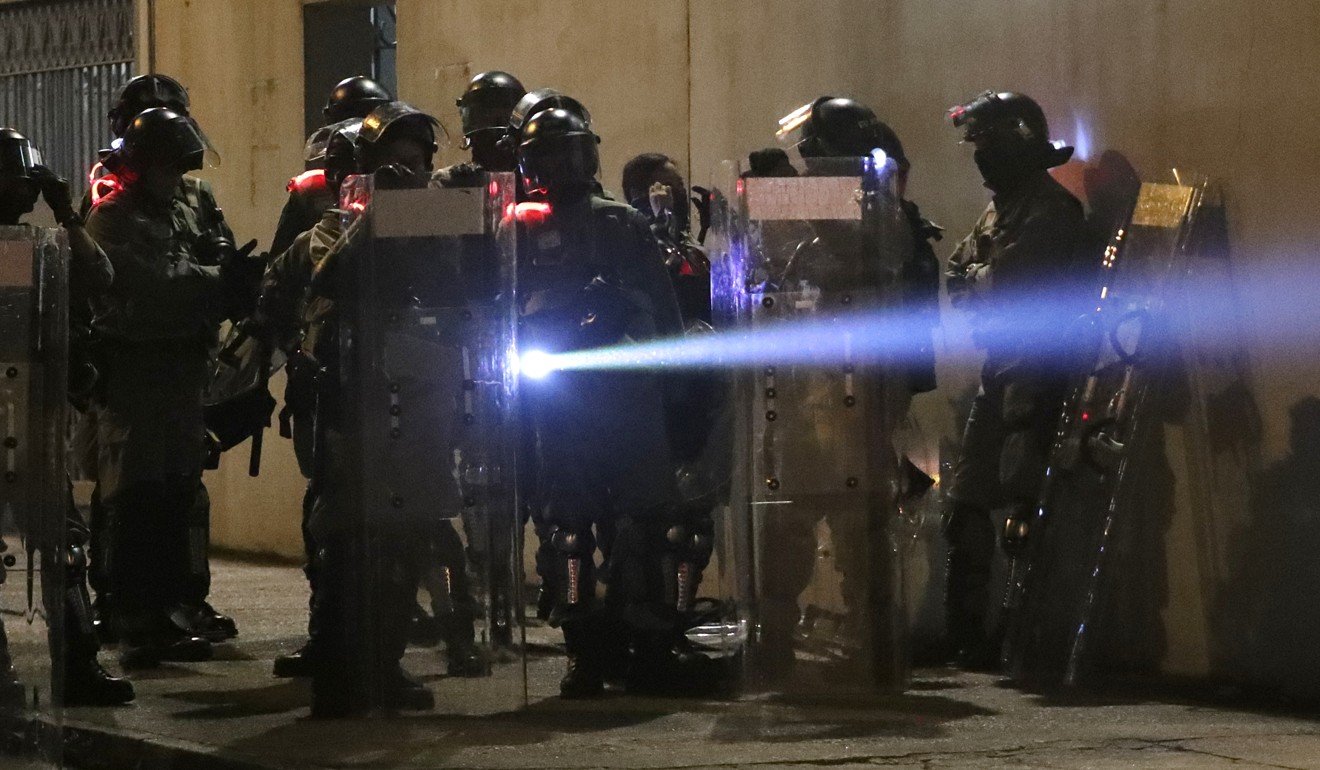
Hong Kong police decline to give details of new scheme which will enable identification of frontline officers during protests
- The force says it has introduced new ‘operational call signs’ – white tags affixed to officers’ vests, displaying their units and sections
- The issue of the policemen’s lack of identification has become the subject of several court challenges
The exchange emerged at a directions hearing in the High Court for the Hong Kong Journalists Association’s upcoming judicial review challenging the force’s alleged failure to facilitate journalistic activities, ensure officers wore visible identification and provide an independent mechanism for investigating complaints.

Three others, mounted by teacher Yeung Tsz-chun and retirees Chan Ki-kau and Kwok Cheuk-kin, are set for hearing on March 27 next year, while the fourth case has yet to be scheduled.
Mr Justice Anderson Chow Ka-ming said he was inclined to hear all similar applications together as he noted that the present case would add the element of press freedom to the debate.
Philip Dykes SC, for the association, said his team had made enquiries with the police upon learning about the introduction of new “operational call signs” announced at the force’s press conference on Monday.
Journalists Association takes police chief to court over acts ‘affecting press freedom’
These new signs come in the form of white tags affixed to frontline officers’ vests, with each card displaying the combination of their unit and section, unique to each member.
Dykes said his client needed to understand the new scheme as it might narrow its challenge if the call signs satisfied requirements of being accessible, comprehensible and traceable.
“I want to argue my freedom of press point discreetly,” Dykes added.
But counsel Anthony Chan, for the commissioner of police, merely acknowledged the existence of a new scheme and said it was “not necessary” to go into details at this stage.

The parties also could not agree on how to approach the other aspect of the judicial review, which raised the question of whether police had a positive duty to facilitate journalists, and the extent or limits to that duty if it existed.
The court heard the association had filed a large number of press releases and witness statements to back its complaint alleging a catalogue of police operational deficiencies.
The examples included police use of high-intensity lights to interfere with visual recording, deliberate attempts to block reporters’ line of sight, as well as incidents of journalists being beaten, kicked, pepper-sprayed, targeted with tear gas and shot with rubber bullets and beanbag rounds.
They [complaints] should be dealt with sooner rather than later but I’m afraid … that’s going to take years
Given the time it would take to resolve the factual disputes arising from each complaint, the judge suggested determining the issue on a principle basis.
“Of course I’m concerned about the complaints,” Chow said. “They should be dealt with sooner rather than later but I’m afraid … that’s going to take years.”
Chan, on the other hand, was concerned that the resulting judgment may be an advisory one devoid of facts or based on limited facts, so he suggested the association provide a short statement of up to 20 pages.
The judge has reserved his decision.

